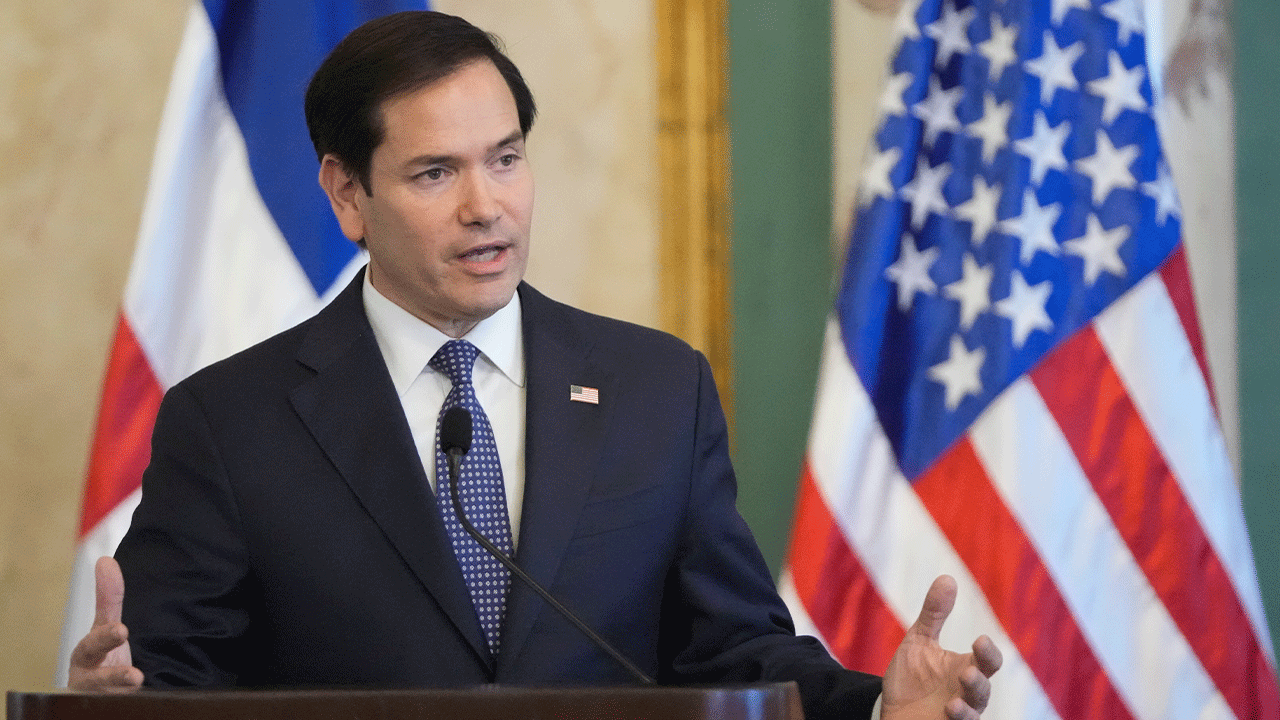Marco Rubio Defends Trump’s ‘Peacemaker’ Role Amidst Criticism: A Double Standard?
In a world where political sentiments often run high and opinions are hotly contested, Senator Marco Rubio’s recent defense of former President Donald Trump has ignited a fervent debate. By dubbing Trump a ‘peacemaker,’ Rubio has not only praised the former president’s diplomatic efforts but also pointed fingers at a perceived double standard in how political figures are judged. This article delves into the implications of Rubio’s statements, the reactions they garnered, and the broader context of political discourse in America today.
Understanding the Context of Rubio’s Defense
Marco Rubio’s defense of Trump comes at a time when the political landscape is fraught with division. Critics of Trump have often labeled him as a divisive figure, citing his rhetoric and policies. However, Rubio argues that beneath the surface lies a record of diplomatic engagement that deserves recognition. He points to Trump’s unconventional approach to international relations, including:
- North Korea: Trump’s historic summits with Kim Jong-un aimed at denuclearization.
- The Middle East: The Abraham Accords, which sought to normalize relations between Israel and several Arab nations.
- Relations with Russia: Efforts to engage with Vladimir Putin to reduce tensions.
Rubio’s assertion that Trump acted as a ‘peacemaker’ suggests that the former president’s diplomatic initiatives are overshadowed by the controversies that have surrounded his administration. Rubio believes that the backlash against Trump is emblematic of a broader issue in American politics: a double standard in how actions are interpreted based on partisan lines.
The Double Standard in Political Discourse
The concept of a double standard in politics is not new. It often manifests when one political party or figure is scrutinized more harshly than another for similar actions. Rubio’s remarks highlight this phenomenon, arguing that Trump’s critics fail to acknowledge the successes in diplomacy while focusing on his more controversial statements and decisions. This selective interpretation raises several questions about fairness and accountability in political reporting and public discourse:
- Are all politicians held to the same standards? Rubio’s defense suggests they are not, particularly when comparing Trump to his predecessors or opponents.
- Is the media biased? Many supporters of Trump believe that mainstream media disproportionately emphasizes negative stories about him, thereby influencing public perception.
- What role does partisanship play? In an increasingly polarized environment, it seems that partisan loyalty can cloud judgment regarding the actions of political figures.
Reactions to Rubio’s Defense
Reactions to Rubio’s comments have been mixed. Supporters of Trump have applauded the senator for recognizing the former president’s efforts, while detractors have criticized Rubio for downplaying the negative consequences of Trump’s policies. This division illustrates the broader rift in American politics, where perceptions of leadership and effectiveness often hinge more on party allegiance than on objective analysis.
For instance, critics argue that while Trump may have engaged in diplomacy, the outcomes of these efforts are debatable. The North Korea summits, for example, did not yield the denuclearization that many had hoped for, and relations with Russia have remained complex and contentious. This raises the question: can we truly label Trump a peacemaker if the long-term impacts of his diplomacy are still uncertain?
Exploring the Broader Implications
Rubio’s defense of Trump’s role as a peacemaker sheds light on a crucial aspect of contemporary political discourse: the need for a more nuanced understanding of political actions and their consequences. Here are some important implications worth considering:
- Encouraging Civil Discourse: Moving beyond binary labels can foster a more civil and productive political discourse. Recognizing both successes and failures can lead to more effective policy discussions.
- Promoting Accountability: While it is important to recognize achievements, it is equally vital to hold leaders accountable for the ramifications of their actions. This balance is essential for a healthy democracy.
- Influencing Future Leadership: The way we interpret past leadership can shape the expectations and behaviors of future leaders. Acknowledging the complexities of political leadership may encourage a more thoughtful approach to governance.
Conclusion: Navigating the Political Landscape
Senator Marco Rubio’s defense of Donald Trump’s ‘peacemaker’ role amid criticism brings to the forefront a critical discussion about the standards by which we evaluate political figures. As political discourse continues to evolve, it is essential to advocate for a more balanced perspective that recognizes both achievements and shortcomings. While the double standard in political judgment remains a contentious issue, engaging in open dialogue can pave the way for a more informed and constructive political environment.
Ultimately, the challenge lies in how we, as a society, choose to assess our leaders. By striving for a more nuanced understanding of political actions, we can contribute to a healthier democratic discourse that transcends partisan divides. As we reflect on Rubio’s remarks, let us also consider how we, too, can be part of the solution in addressing the complexities of modern governance.
See more BBC Express News

